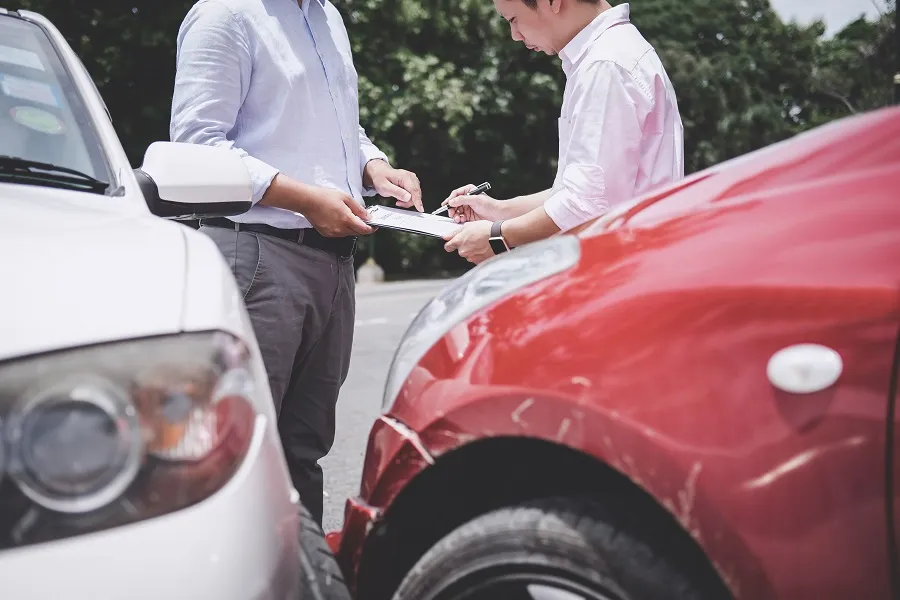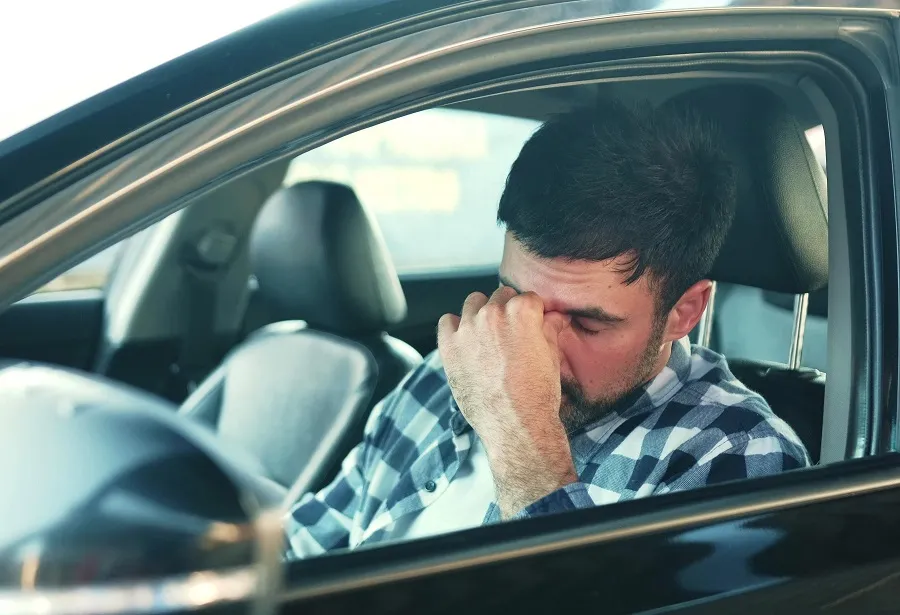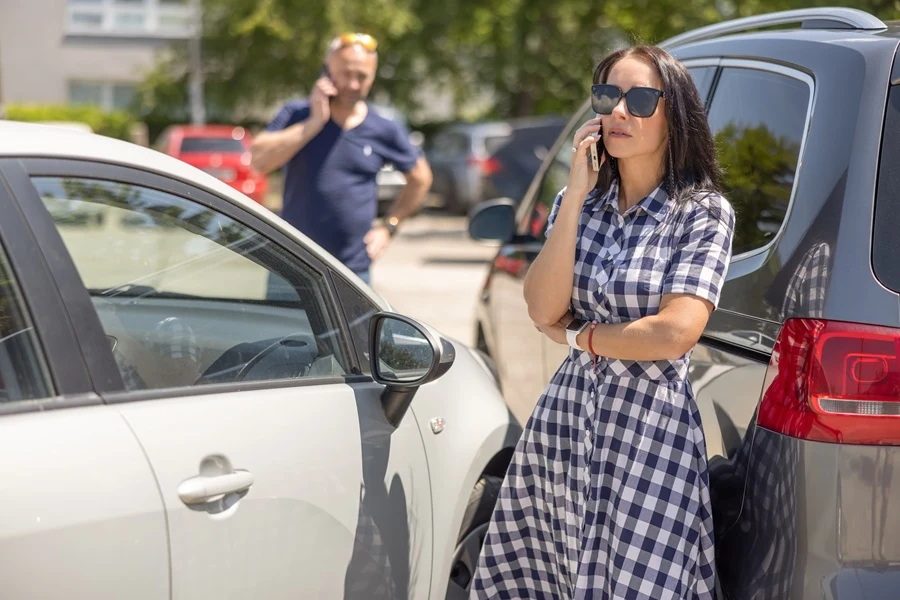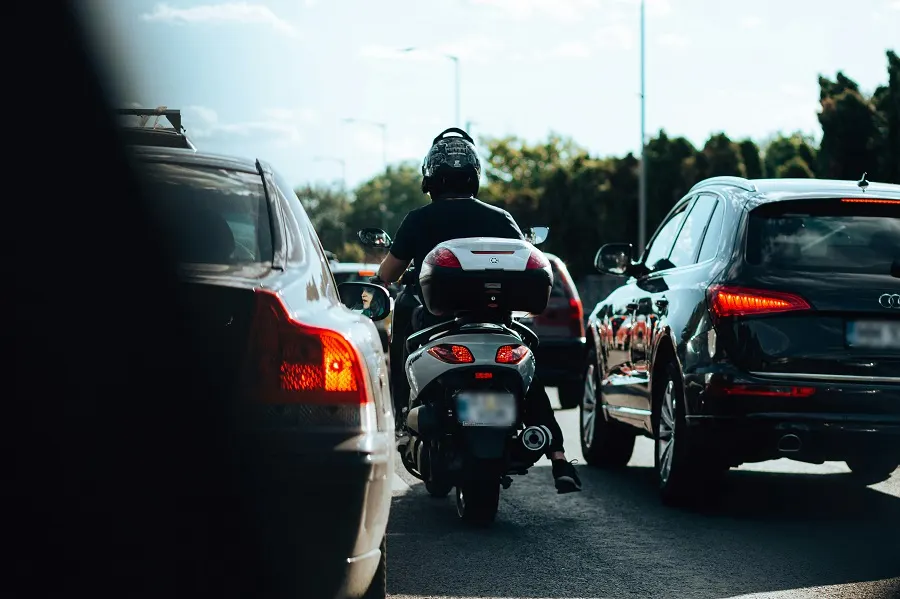In California, approximately one in five drivers operates a vehicle without proper insurance coverage, creating significant financial risks for everyone on the road. As of 2023, the state’s uninsured motorist rate was 20.4% (well above the 15.4% national average), ranking 8th highest in the U.S. This significantly increases the risk of encountering uninsured drivers on the road.
In this post, the knowledgeable no-insurance car accident lawyers at Cohen & Marzban will help you understand uninsured motorist coverage, the steps you should take after an accident, and your legal options for seeking compensation.
Car Accident Liability Laws in California: Fault and Responsibility
Determining liability in a car accident is central to seeking compensation. If you're injured in an accident due to a negligent driver, you may have the right to seek compensation for your medical bills, lost wages, pain and suffering, and other losses.
Consider the following key points regarding California car insurance laws:
If you find yourself in an auto accident, one of the first things you should do is consult a qualified car accident attorney to better understand your legal rights, obligations, and options.
What Is the Penalty for Driving Without Car Insurance in California?
Driving without car insurance in California is not only illegal but also carries significant penalties, including fines, license suspension, different legal consequences, and even vehicle impoundment. Here's a breakdown of the potential consequences:
As you can see, driving without car insurance in California is a risky (and potentially costly) decision. Having adequate car insurance coverage can help ensure your safety, financial well-being, and compliance with the law.
Understanding Uninsured and Underinsured Motorist Coverage
Uninsured motorist coverage is a type of insurance coverage that protects you in the event that you're injured in an accident caused by a driver who doesn't have insurance.
While not mandatory, having UM coverage is highly recommended in California. Since the state has a large number of uninsured drivers, having this protection can spare you considerable financial hardship. Under California Insurance Code §11580.2, all insurers must offer UM and UIM coverage with every liability policy sold in the state, though policyholders can decline it in writing.
UM coverage is designed to compensate the policyholder for the following:
- Medical bills: Hospitalization, surgeries, and other medical expenses resulting from the accident.
- Lost income: If your injuries prevent you from working temporarily or long-term.
- Pain and suffering: Emotional distress, trauma, and loss of enjoyment of life.
- Property damage: If included in your policy.
Essentially, UM coverage is a backup plan when the other driver is unable to pay for the harm they cause. It acts as a financial safety net, helping you recover and move forward after an accident that wasn't your fault.
Underinsured motorist coverage, meanwhile, protects you if you're injured in an accident caused by a driver whose liability limits are insufficient to pay for all of the effects you've experienced as a result of the accident. When activated, it fills in the gaps to ensure that your losses are covered in full.
If you're hurt in an accident with an underinsured driver, your UIM coverage will:
- Step in as a secondary insurer: Your insurance company will act as a secondary insurer, paying for your losses beyond what the other driver's insurance covers.
- Pay the difference: Your UIM coverage will pay the difference between the total amount of your losses and the other driver's liability limits.
- Negotiate and settle: Your insurer will negotiate with the other driver's insurance company to reach a fair settlement for your losses up to the limits of your UIM coverage.
California has a high number of drivers with minimal liability coverage — many carrying only the state-mandated 30/60/15 minimum. However, having UIM coverage provides essential financial protection in these situations, particularly given that medical treatment costs continue to rise faster than minimum insurance requirements.
Accidents with Uninsured or Underinsured Drivers in California

Auto accidents involving an underinsured or uninsured driver present unique challenges for those seeking compensation. They can be especially difficult because the injured party might not have access to the financial resources they need to cover their losses.
California law recognizes these challenges and offers certain protections for victims. However, navigating these situations requires an understanding of your legal options and careful attention to procedural detail.
What to Do If an Uninsured Driver Causes the Accident

If the other driver was responsible for the accident but they're uninsured or underinsured, you may be able to recover compensation through your policy's UM or UIM coverage.
Here's how it typically works:
1. File a Claim
Contact your insurance company and file a claim under your UM/UIM coverage. Make sure to provide them with all the details of the accident, including the other driver's information and the details of your policy. Your insurance claim should include documentation from the accident scene, police reports, medical records, and any evidence demonstrating the other driver's lack of proper insurance coverage.
2. Wait for Your Insurance Company to Step In
Your insurer will essentially act as if the other driver were the policyholder. The insurance company will review your medical bills, medical expenses, property damage estimates, and other documentation to determine the full extent of your damages.
3. Negotiate a Fair Settlement
Your insurance company will work with you to settle your claim, covering most or all of your medical expenses, lost wages, pain and suffering, and property damage. They'll try to reach a fair settlement based on the extent of your injuries and losses.
Keep in mind that your UM/UIM coverage has limits. These limits are specified in your policy documents and determine the maximum amount your insurance company will pay. If the other driver's liability exceeds your UM/UIM limits, you may not receive full compensation for your losses.
What to Do If You Cause the Accident

If you were at fault for an accident with a driver who's uninsured or underinsured, your options are more limited. Here's what you need to know:
1. Understand Your Liability
The point of having insurance is to offset the financial consequences of unforeseen events. As such, if you cause an accident with another driver who's uninsured or underinsured, you'll be responsible for paying for their losses.
2. Prepare to Cover Costs If the Other Driver Has No Insurance
If the other driver is completely uninsured, it will fall to you to pay for their losses, including medical expenses, lost wages, property damage, vehicle repair or replacement costs, and pain and suffering. You'll either have to pay out of pocket or potentially have payment ordered via a personal injury lawsuit filed against you.
3. Fill the Gap If Their Coverage Falls Short
If the other driver is underinsured, their insurance policy will only cover a portion of their losses. You'll likely be responsible for covering the remaining amount, which could be substantial.
4. Anticipate Legal Action
If the other driver's insurance coverage and what you can afford to pay isn't enough to cover the full extent of their losses when combined, they may decide to pursue legal action against you to recover the full amount. This could involve steep legal fees and financial difficulties for you.
What Happens If You Have No Insurance but the Other Driver Was at Fault in California?

Many drivers mistakenly believe that if they're not at fault in an accident, their lack of insurance won't affect their ability to recover compensation. Unfortunately, California's "No Pay, No Play" law tells a different story.
Understanding California's "No Pay, No Play" Law (Proposition 213)
California Civil Code Section 3333.4, commonly known as Proposition 213 or the "No Pay, No Play" law, imposes severe restrictions on uninsured drivers seeking compensation even when they bear no fault for the accident.
What You Can and Cannot Recover Without Insurance
Under California’s “No Pay, No Play” law (Proposition 213), uninsured drivers face serious limitations when seeking compensation — even if they’re not at fault in a car accident.
If you’re uninsured, you cannot recover non-economic damages, such as:
- Pain and suffering
- Emotional distress
- Loss of enjoyment of life
- Physical discomfort
- Reduced quality of life
However, you can still recover economic damages, including:
- Documented medical expenses
- Lost wages and reduced earning capacity
- Property damage to your vehicle
- Rehabilitation and treatment costs
There is one significant exception to Proposition 213's restrictions. If the at-fault driver is subsequently convicted of driving under the influence (DUI) of alcohol or drugs, you may recover full compensation, including non-economic damages — regardless of your uninsured status. This exception ensures that the most egregious acts of vehicular negligence carry full civil liability.
Why Legal Representation Matters After a California No-Insurance Car Accident

Car accidents involving uninsured or underinsured drivers often present legal and insurance hurdles that are difficult to manage alone. Working with an experienced attorney can help you protect your rights and secure fair compensation. Here’s how legal representation helps:
- Legal guidance: Understand how California laws like Proposition 213 impact your ability to recover damages.
- Claim maximization: Identify all available insurance coverage and pursue full compensation under UM/UIM policies.
- Insurance negotiation: Push back against lowball offers and navigate complex claim procedures with confidence.
- Lawsuit support: File a personal injury lawsuit if necessary and ensure all deadlines and procedures are followed correctly.
Having the right legal assistance ensures you’re not taken advantage of and gives you the best chance at financial recovery.

.webp)
.webp)

.webp)

